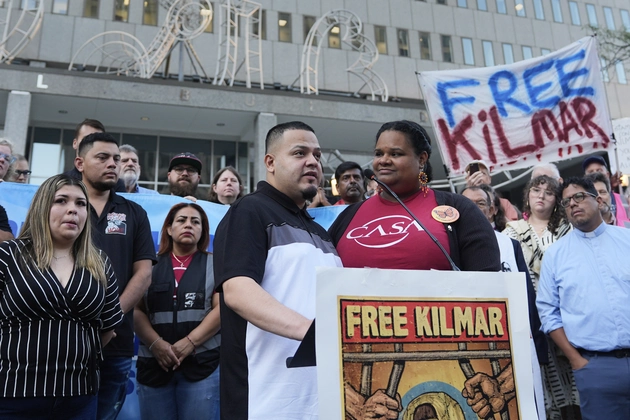Kilmar Abrego, the migrant whose wrongful deportation to El Salvador became a symbol of U.S. immigration controversies, was detained again by U.S. immigration officials in Baltimore on Monday. Authorities say he may face deportation to Uganda, a country with which Abrego has no known ties.
Abrego, 30, was mistakenly sent to El Salvador in March under the Trump administration’s immigration policies, despite a 2019 court ruling protecting him from deportation due to persecution risks. He returned to the U.S. in June to face criminal charges related to transporting migrants living in the country illegally and was released on bond last Friday.
During a Monday hearing conducted by U.S. District Judge Paula Xinis, the government was barred from deporting Abrego until further court proceedings. The judge highlighted concerns over the lack of assurances that Abrego would not be imprisoned in Uganda or returned to El Salvador, noting an “absence of process” in handling his immigration claims.
Abrego’s lawyers have criticized the administration for what they call “vindictive prosecution,” pointing out that the government offered him deportation to Costa Rica as part of plea negotiations. They argue that deporting him to Uganda without guarantees of safety would violate his constitutional rights.
Despite legal battles, Abrego’s case has drawn public attention, with supporters gathering at ICE offices to show solidarity. Abrego expressed the emotional toll of detention, recalling cherished moments with his family that give him strength to continue fighting for his rights.
Andrea Flores, a former Biden administration immigration official, called the possible deportation to Uganda “completely unconstitutional” and warned that it appears retaliatory rather than justified by national security or public safety concerns.
Abrego’s detention shows ongoing debates over U.S. immigration enforcement, executive power, and due process for migrants. His case continues to draw attention to the challenges migrants face when navigating complex legal and political landscapes while trying to protect their families.

